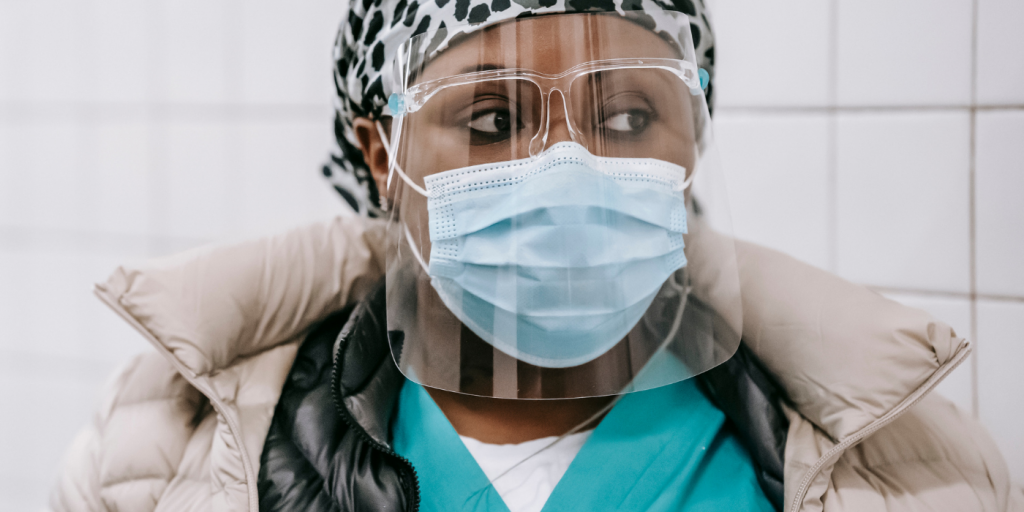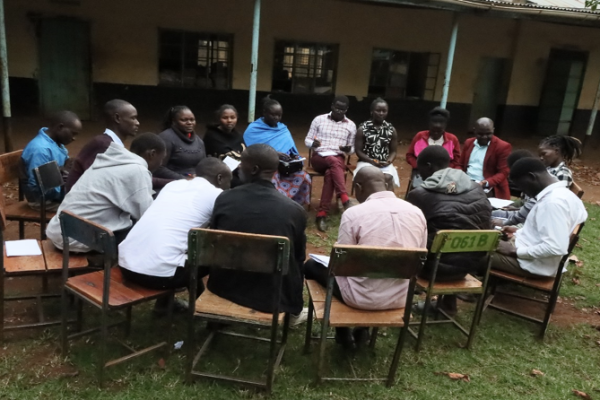Authors; Biggy Dziro and Primrose Nyamayaro
Currently, the world is experiencing a third wave of the COVID-19 pandemic, resulting in an increase in infections and deaths. Moreover, the prolonged nature of the pandemic, the uncertainty of its duration, the uneven vaccine roll-out and its inadequate accessibility all have an impact on mental health. Indeed, the very measures instituted by governments to contain spread of the virus, such as social distancing, lockdowns, travel restrictions and isolation, have inevitably driven increased levels of stress, depression, and anxiety. The severe disruption that the pandemic has caused to everyday life has led to increased demand of mental health services. These are among the reasons that the World Health Organization (WHO) recognises mental health as a vital component of the COVID-19 response.
High-level dialogue on the impact of COVID-19 on mental health in Africa
This is a report on the impact of COVID-19 on mental health in Africa, with emphasis on women, children, health workers and people with chronic conditions. It explores the efforts of African governments to address mental health treatment needs during the pandemic and to improve treatment after the pandemic has passed. It is informed by a dialogue on this topic among high-level African policy makers, mental health researchers and other key stakeholders held on June 30, 2021. The discussion is part of a broader consideration of how science policy can support evidence-informed policy responses to COVID-19 in Africa. The initiative was convened and managed by the Alliance for Accelerating Excellence in Science in Africa (AESA) with support from the UK Foreign, Commonwealth & Development Office (FCDO) East Africa Research and Innovation Hub (UK FCDO’s EARIH).
Summary Outcomes
Impact of COVID-19 on the mental health of different populations
As the COVID-19 pandemic continues, some groups are at special risk of psychological distress, depression, and anxiety:
- health care workers who provide care for COVID-19 patients – these people bear witness to the daily death of patients in their care.
- those with pre-existing mental health treatment needs, who have limited access to medication and services, resulting in compromised quality of care. Resources have been redeployed in response to the pandemic, resulting in the closure of some mental health facilities and the displacement of some mental health professionals.
- people with chronic medical conditions such as hypertension and diabetes can fear exposure to COVID-19 when seeking treatment and therefore hesitate to access treatment even when it’s available, recognizing their higher risk of severe disease and death in the case that they contract the virus.
- children: school closures because of the COVID-19 pandemic have disrupted learning and socialization among peers.
- adolescents: coping mechanisms in response to pandemic disruptions have resulted in an increase in teenage pregnancies and alcohol and drug abuse.
- children and teens who suffer abuse in their homes, who prior found schools to be a safe space. Lockdowns have resulted in an increase in cases of violence against children by their parents. These dynamics may have long-lasting mental health consequences in youth.
- women who experience gender-based violence; lockdowns have led to an increase in this violence. The resulting trauma and anxiety is made worse by restrictions on leaving home which prevents victims from seeking support.
- those with primary responsibility for home and family, primarily women. Household responsibilities have increased during the pandemic, including not just chores but also home-schooling children and tending sick family members.
Addressing the effects of COVID-19 on mental health
Governments throughout the world, including in Africa, have recognised the importance of prioritising, and promoting mental health and psychosocial support (MHPSS) as an essential component of the COVID-19 response.
Strategies to provide mental health support have included the use of digital platforms, including online counselling services. However, these solutions depend on sufficient Internet and smart device access, which remains a huge challenge for most people in Africa. Health practitioners have adopted media that does not rely on such access — such as radio, television, and toll-free call centres — to support the mental health of those without internet access during the pandemic.
Some African nations have instituted online learning for students to increase the social engagement of learners.
Key messages to enhance mental health care in the COVID-19 response
Policy:
- There must be sufficient financing for mental health care
- Mental health care must be integrated in the provision of medical health care
- Access to mental health professionals must be provided at all levels of care, starting from screening
- Frontline workers must be trained in basic counselling skills
- Home-based care must be offered to minimize the stigma of mental health care
Research:
- Therapies and interventions must be developed for COVID-19-related mental disorders


